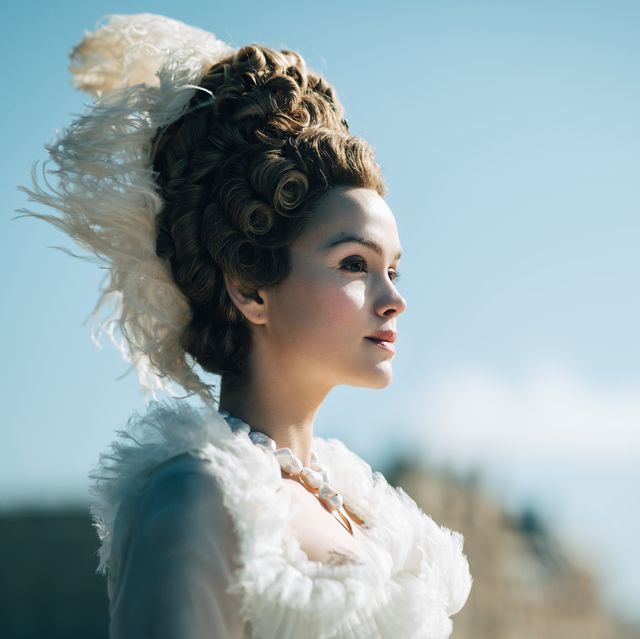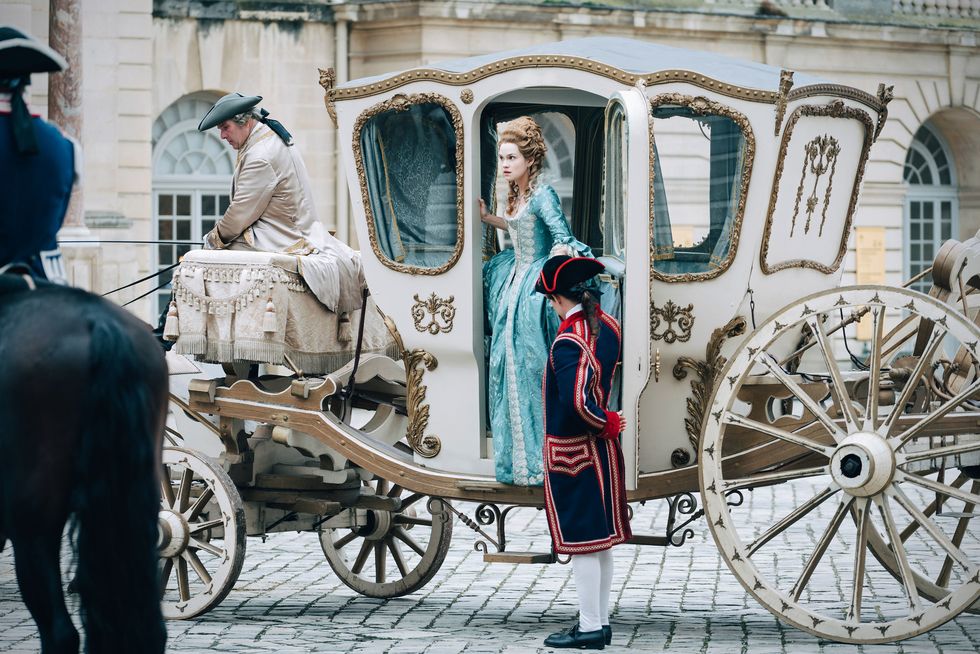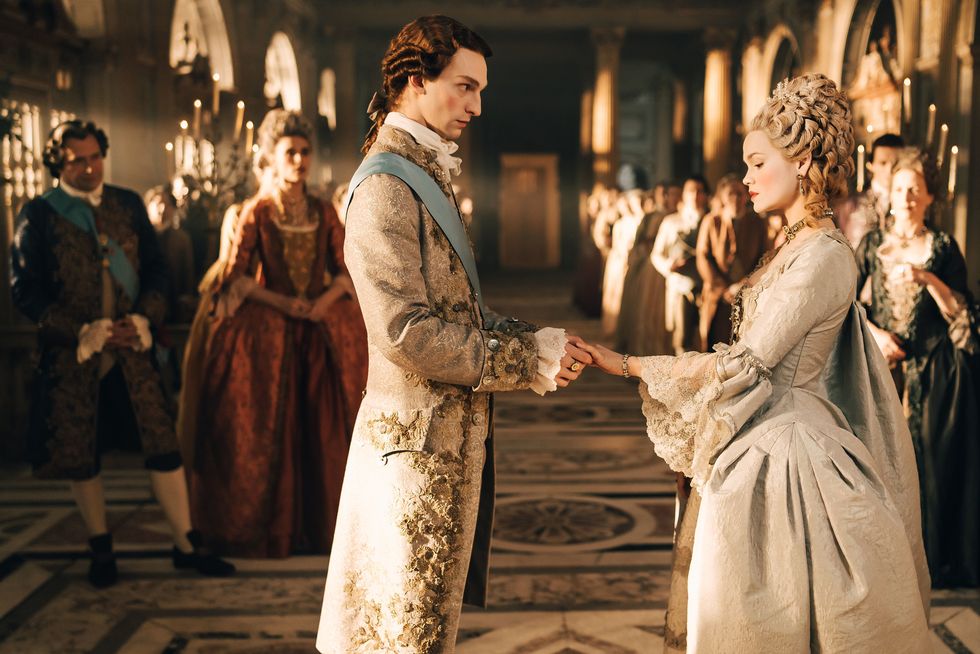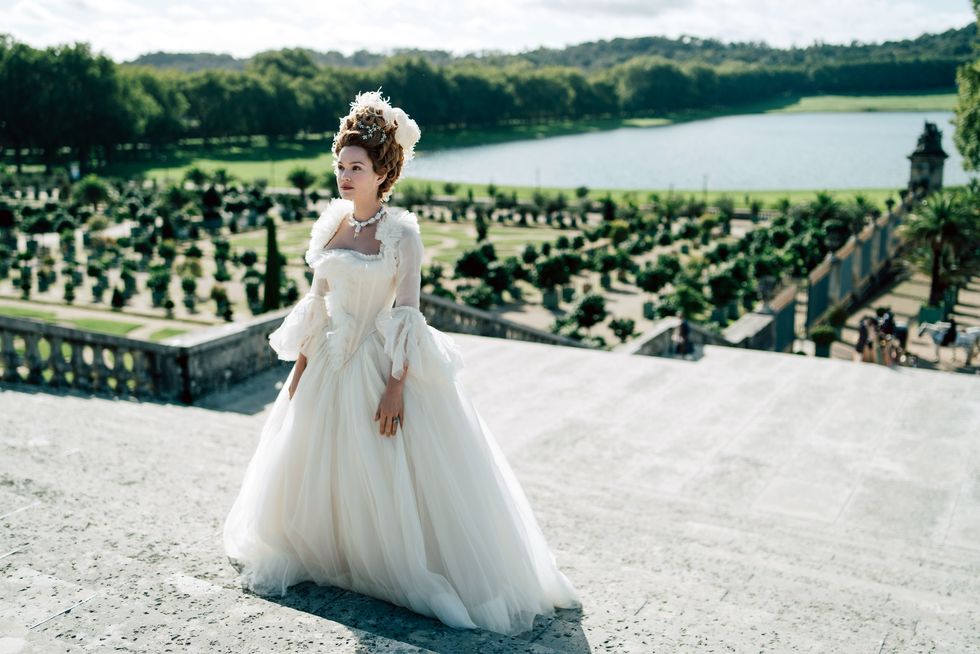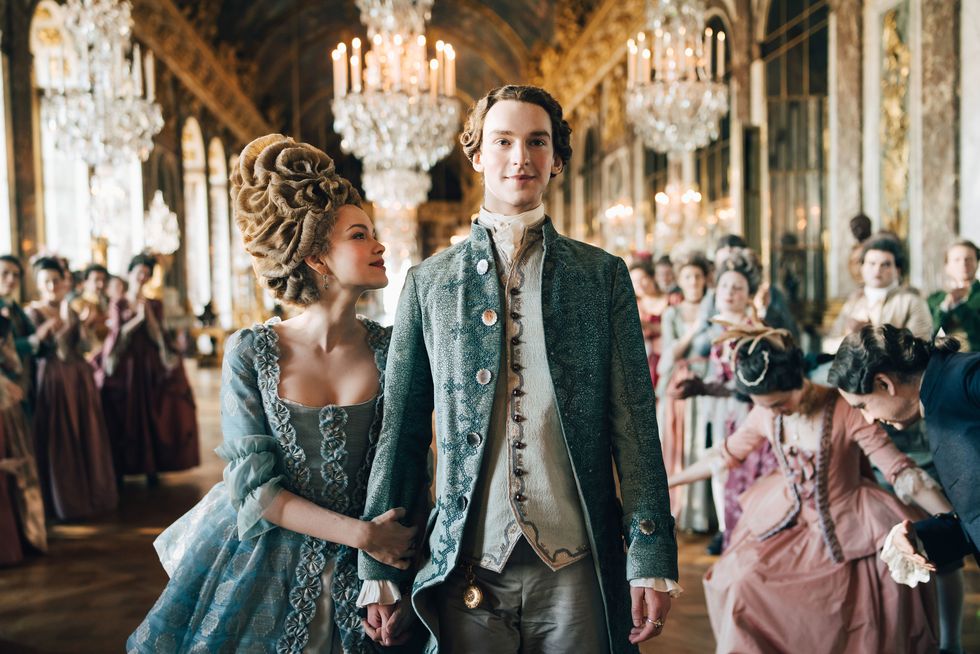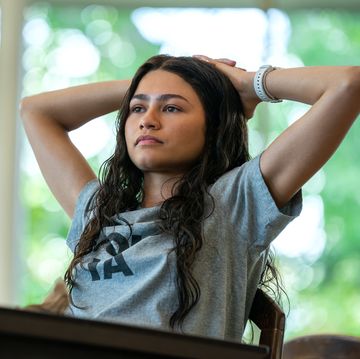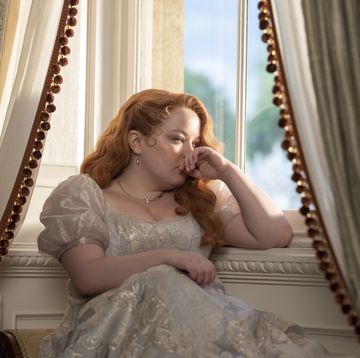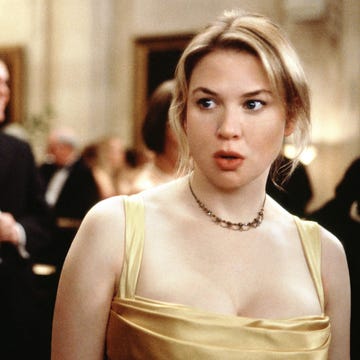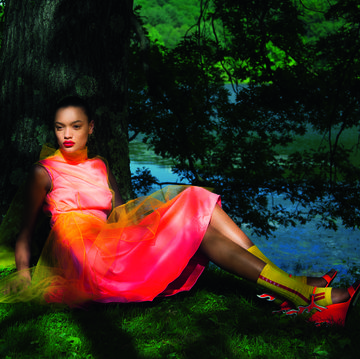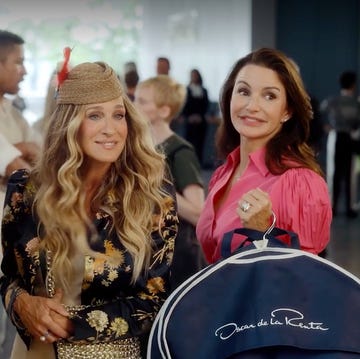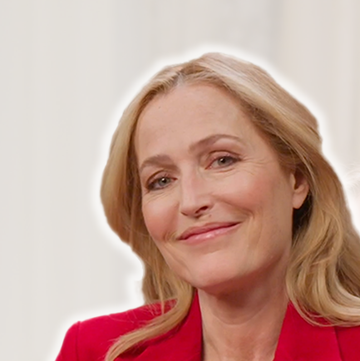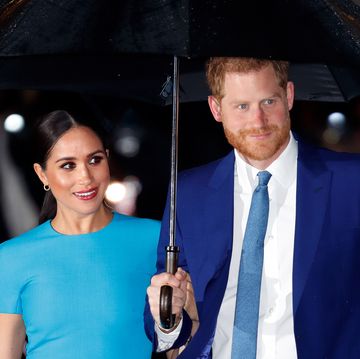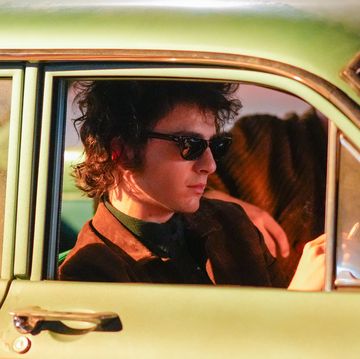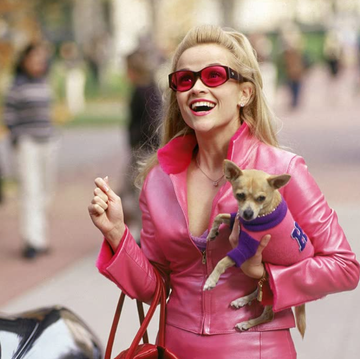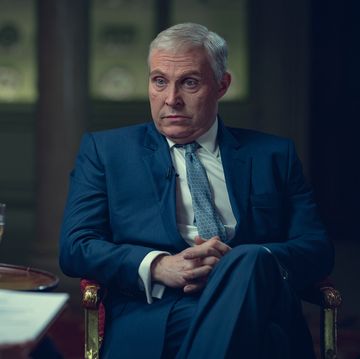Before Meghan Markle, there was Marie Antoinette, another royal whose reputation was beleaguered and misappropriated. Hounded by pamphlets and media portrayals of her as a malicious, scheming foreigner who had infiltrated the French court, she became one of the most hated figures of the French Revolution. Fascinatingly, her tarnished reputation has echoed through the centuries. Even today, we often know her only as a royal diva, who callously shrugged off her people's hunger with the infamous phrase "let them eat cake".
Many have been enthralled by story of the last Queen of France, who met her untimely demise at the hands of Madame Guillotine in 1793, and have tried to capture her essence; perhaps the most notable was Kirsten Dunst's 2006 portrayal in Sofia Coppola's cult film. Now, a new series, penned by The Favourite writer Deborah Davis, aims to bring the last mistress of Versailles to life in a whole new way – and rehabilitate her image in the process.
The first season, which hits BBC2 this December, stars Emilia Schüle as the party-loving royal, alongside Louis Cunningham as her husband, King Louis XVI. The series will show the young Queen, in Davis' words, as a "teenage rebel determined to stamp her vision on Versailles" who "emerges as Queen of the Zeitgeist" in her first few years in the French court. "She embodies our views of personal freedom, individuality, equality and self-determination," says Davis. "But it was these very modern qualities, combined with her absolute determination to live the life she wanted to live, that enabled her enemies to undermine and ultimately destroy her."
So, who was the real Marie Antoinette?
She wasn't actually French
One of the most famous French women of all time was not, of course, French at all. She was born in November 1755 in Vienna, the youngest daughter of the Empress of Austria, Maria Theresa. Marie Antoinette was raised in a court led by her formidable mother, who ruled Austria alone (one of the only female rulers of the period to have reigned in her own right) for 40 years. One historical account has it that Maria Theresa gave birth to Marie Antoinette while sitting in a chair, reading state papers, something she immediately returned to once the child was born.
In 1770, aged 14, Marie Antoinette was married to the heir to the French throne, Louis Auguste, and left Austria behind for good. Her marriage was one of political expedience – meant to unite Austria and France, two countries that had, only recently, been at war. On arrival at Versailles, the base of the French court, she struggled to find acceptance as many resented her simply for being Austrian; their old enemy. She also found the strange traditions and customs of Versailles ridiculous, not least the practice of having the noble women at court both dress and undress her publicly. "I put on my rouge and wash my hands in front of the whole world," she wrote to her mother in 1770.
She had marriage troubles
There wasn't much that Marie Antoinette could do about the main reason for hostility towards her at Versailles – being Austrian. But a secondary problem arose immediately, which she became determined to fix: her husband wasn't sleeping with her. Various historical accounts have tried to pinpoint the reason that Louis Auguste, later Louis XVI of France, initially failed to consummate his marriage – ranging from nervousness and piety to an actual physical problem.
When Marie Antoinette's brother Joseph visited the royal couple in 1777, he wrote that they were merely "two complete blunderers". Whatever the issue was, it left Marie Antoinette in a tenuous position at court; in addition to her lack of a pregnancy, Versailles was devoid of privacy, and her unconsummated marriage was a widely known fact for seven years. For the latter three of these, Marie Antoinette had become the Queen of France, following the death of her father-in-law, Louis XVI. For a queen in the 18th century not to produce an heir was, of course, extremely dangerous.
She was the original fashion icon – and loved a party
Thankfully, in 1778, whatever bedroom issues the couple had were somehow resolved. Marie Antoinette gave birth to a daughter, Marie Therese, in December of that year, and this was followed by two sons, in 1781 and 1785, and another daughter in 1786. The validity of her marriage could no longer be questioned, but her unpopularity began to be fuelled by another issue altogether: her incessant partying and questionable friends.
Interestingly, claims about Marie Antoinette's pomp and grandeur are mostly unfounded. Indeed, she was actually criticised within royal circles for preferring simplicity, and contemporary writer Mary Wollstonecraft notes that she "threw aside the cumbersome brocade of ceremony". She was a huge fashion icon of the day – perhaps the original trendsetter – and made popular the plain gauzy dresses that would later come to define the beginning of the 19th century. She also eschewed the ornateness of Versailles for a mini farm she had built on the grounds, Le Petit Trianon, which still stands today.
But what she lacked in gaudiness she made up for in profligacy. Marie Antoinette's extravagance was parties – of which she had many. She was soon detested as a woman spending small fortunes on nights of revelry with the 'It' girls of the day – including her controversial best friend, the Duchess of Polignac, who was regarded as a scandalous woman for her numerous rumoured affairs. By today's standards, the French Queen would no doubt have been accused of abusing her privileges, something noted by Marie Antoinette's own sister, who wrote of her: "her only fault was that she loved entertainment and parties."
She was the subject of incessant rumour and scandal
When a mob descended on Versailles in October 1789, within the first few months of the French Revolution, the calls were not for the death of the King, but for the head of the Queen. Why? According to historian Antonia Fraser: "The real work of [Marie Antoinette's] destruction had been done long before by satire, libel and rumour."
Marie Antoinette was one of the original victims of media destruction. Her Austrian nationality meant she was initially depicted in political publications as a foreign spy; her unconsummated marriage then provoked numerous salacious rumours that she was seeking her pleasure elsewhere, and her close friendships and financial patronage of women like Polignac, led to a persistent rumour that she was one of her many lesbian lovers. Thanks to this incessant negative coverage, she ended her days as a convenient scapegoat for the very real, entrenched societal issues that started the French Revolution.
What several historians, and Deborah Davis' new show, debunk, are the myths surrounding Marie Antoinette. So much about her character has been the product of ancient misogyny and xenophobia. While she indeed partied while others starved, she was also a product of an ancient regime – one that she tried, in her own small way, to change. Perhaps her final words, recorded on the scaffold in 1793, sum her up best. After stepping on the executioner's foot, she said: "I beg your pardon, I did not do it on purpose."
'Marie Antoinette' debuts on BBC2 on 29 December
